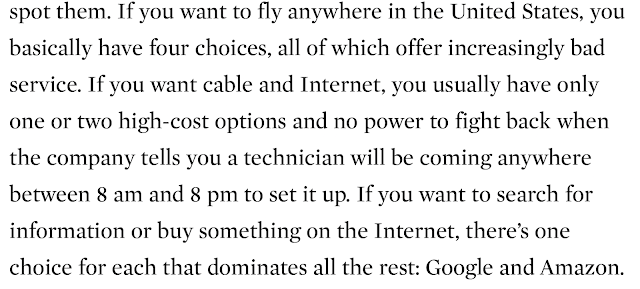One of the things that never fails to shock me about the advertising business is how its esoteric-ness has skyrocketed in the forty years since I entered the business.
When I was young, we used to talk to companies about how they did business, how they treated customers, the way their stores looked, how they answered the phone. We wrote ads for them, of course, and Christmas cards. But many of us realized (and acted on) a larger idea that we were here to improve the public's perception of a company not just its ads.
Public perception happens in a trillion ways every day. Ads are seen by fewer and fewer people and seem to matter less and less. Ads, in fact, are a small part today of the complex amalgam that makes up how people feel toward a brand. What's more, so many ads are created with the care given the 107th of 108 Xerox copies, that most of them have a life expectancy about 1/10th the longevity of the common mayfly.
Even so, more and more, ad agencies do ads that don't even run where real people (not awards' juries) can see them. And they're about smaller and smaller topics and further and further removed from 'the reality-based community.'
I remember when I was at Ally & Gargano my boss Ed Butler when told of an offer or offering from the bank we worked on, would often cite a segment that appeared on the news of the local affiliate of CBS. It was called "Shame on You." It would featured companies that engaged in heinous mistreatment or said one thing and did another. Ed would often say, "You're going to show up on 'Shame on You.'" Often the client would heed Ed's advice.
Even things that seem temporarily good for business and turn out to be catastrophic for business if they're based on lies or deceit.
Over the past couple of weeks, I've seen what to my eyes seem like important articles in The Wall Street Journal. If you're in the business of helping clients business (once the sine qua non of advertising) you'd think such articles would be noticed. You'd think they'd be talked about. You'd think agencies might be advising clients on how to improve their customer relationships and their overall perception.
Alas, CMOs are as far removed from how customers are treated as lofty politicians are from the needs and concerns of their electorate.
So, people--you and I--hate brands more and more. Yet the commercials and ads we make pretend such disdain just doesn't exist. Cue the happy family eating bottomless breadsticks or the happy family luxuriating on a plane that's spotlessly clean, well-lit and accoutered with flight-attendants that make Heidi Klum look like some old bag.
The subject-object split in advertising has never been more of an abyss. What's shown has never been farther removed from what's real. (I think the same is true of agencies themselves. They're "network of the year," but they dropped from 1000 employees four years ago to 100 today.)
Or people don't like/trust advertising, yet we tack on 20 seconds of disclaimers to a 30 second spot read at a rate that screams "we're speaking fast because we're pulling a fast one," or "you need this drug even though it gives you projectile vomiting and can cause death."
At its very core, marketing and capitalism are about trust. Trust. As in if you don't trust us you won't buy from us.
That's why our industry ignoring trust (and the current administration destroying trust) is so terribly dangerous and threatening.
Sixty-one years ago, an agency Omnicom just shut down ran this ad for Avis.
It's an ad based on caring.
It's an ad made-better by empathy.
It's an ad that speaks human.
It's an ad that understands the woes of consumers and how hard it is to get helped.
It's an ad that defined a brand as different, better.
I've talked to clients about running ads like this. The best reaction I got to such a suggestion was to be shunted aside as "naive."
When you look at present day data like this, it would seem to me what's naive is doing nothing at all and pretending customer disdain doesn't exist or will go away because you want it to.
- More that 3/4 customers had a product or service problem in the last twelve months.
- More than 7/10 customers think companies need to improve their customer experience.
- A University of Michigan study shows consumer sentiment dropping by roughly 33-percent since the beginning of the year.
Our industry claims to want to keep abreast of culture. Dissatisfaction with current course and speed is a huge part of our lives--and culture. We ignore anything that doesn't show people smiling.
As Scott Broetzmann, the president and chief executive of Customer Care Measurement & Consulting, which conducts the National Customer Rage Survey with the W.P. Carey School of Business at Arizona State University, recently said “I can order dental floss and it’ll be at my doorstep in 30 minutes, but when it comes to problem-handling, it’s still an effortful, frustrating, emotionally stressful.”
Forrester principal analyst Pete Jacques sums it up well. “Like the proverbial frog that doesn’t feel the water becoming increasingly hotter, many North American brands are inching into more treacherous positions with their customers’ loyalty."
As Rich Siegel over at Round Seventeen might conclude, "Mmmmmm, boiled frog."
























































